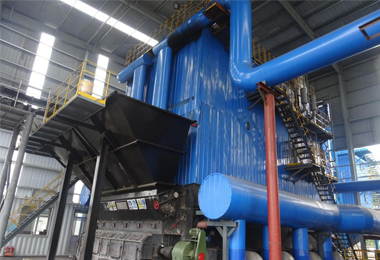
Oct . 03, 2024 12:07 Back to list
how does an oil fired boiler work
How Does an Oil Fired Boiler Work?
Oil fired boilers are a popular choice for heating buildings, especially in areas where natural gas is not available. These boilers operate by burning oil to produce hot water or steam, which can then be circulated throughout a home or commercial space to provide warmth.
The process begins with the oil being stored in a tank, usually located outside the building. When the thermostat signals that the interior temperature has fallen below the desired level, the boiler activates. Oil is drawn from the tank through a fuel line into the burner.
Once the oil reaches the burner, it is atomized into a fine mist using a specialized nozzle. This atomization is crucial because it allows for a more thorough mixing of the oil with air, enhancing combustion efficiency. A blower then introduces air into the mixture, promoting an effective burn. The combustion process takes place in the combustion chamber, where the oil mist ignites, producing flames that heat the water in the boiler’s heat exchanger.
how does an oil fired boiler work

The heat exchanger is a critical component of the oil fired boiler, as it transfers the heat generated from burning oil to the water circulating within the system
. The heated water or steam is then distributed throughout the building via radiators, baseboard heaters, or radiant floor systems, warming the space effectively.After the combustion process, the exhaust gases produced must be vented outside. An exhaust flue carries these fumes away from the boiler and out of the building, ensuring indoor air quality is maintained. Many modern oil fired boilers also include a chimney to help facilitate this process.
Maintenance is essential for oil fired boilers to ensure they operate efficiently and safely. Regular checks and cleanings can prevent soot buildup and ensure that the burner and heat exchanger operate optimally. It is also advisable to have an annual service conducted by a professional to inspect components and replace any worn parts.
In summary, oil fired boilers operate by converting the chemical energy of oil into heat through combustion, which is then transferred to water or steam for heating purposes. Their efficiency and effectiveness make them a reliable option for heating in various settings.
-
High-Efficiency Commercial Oil Fired Steam Boiler for Industry
NewsJul.30,2025
-
High-Efficiency Biomass Fired Thermal Oil Boiler Solutions
NewsJul.30,2025
-
High Efficiency Gas Fired Thermal Oil Boiler for Industrial Heating
NewsJul.29,2025
-
High-Efficiency Gas Fired Hot Water Boiler for Sale – Reliable & Affordable
NewsJul.29,2025
-
High Efficiency Biomass Fired Hot Water Boiler for Industrial and Commercial Use
NewsJul.29,2025
-
High-Efficiency Biomass Fired Hot Water Boiler for Industrial Use
NewsJul.28,2025
Related PRODUCTS






















